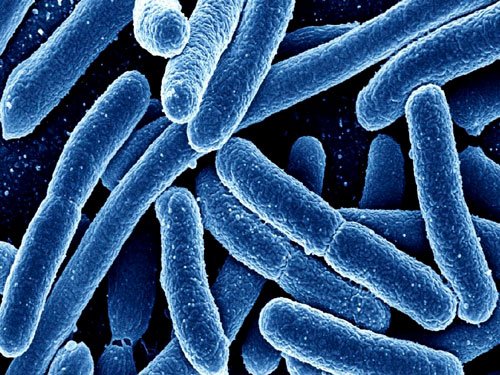Studies have found that certain types of intestinal bacteria might be factors in both causing and preventing obesity, as well as other conditions and diseases. Now, a UCLA study has found that these organisms could potentially be used to reduce the risk for some types of cancer.
In the near future, doctors might be able to reduce an individual’s risk for cancer by analyzing the levels and types of intestinal bacteria in the body, and then prescribing probiotics to replace or boost the amount of bacteria with anti-inflammatory properties, noted senior author Robert Schiestl, PhD, professor of pathology, environmental health sciences and radiation oncology at UCLA. Over millions of years, intestinal bacteria have evolved into both good and bad types: The good ones have anti-inflammatory properties and the bad ones promote inflammation. The human body typically contains about 10 trillion bacterial cells, compared to only 1 trillion human cells.
The researchers isolated a bacterium called Lactobacillus johnsonii 456, which is the most abundant of the beneficial bacteria, and has some pretty useful applications outside of medicine. In the study. the bacterium reduced gene damage and significantly reduced inflammation, which is a critical goal because inflammation plays a key role in many diseases, including cancer, neurodegenerative diseases, heart disease, arthritis and lupus, and in the aging process.
Previous research led by Dr. Schiestl presented the first evidence of a relationship between intestinal bacteria and the onset of lymphoma, a cancer that originates in the immune system. The new study explains how this microbiota might delay the onset of cancer, and suggests that probiotic supplements could help keep cancer from forming. For both studies, the researchers used mice that had mutations in a gene called ATM, which made them susceptible to a neurologic disorder called ataxia telangiectasia. The disorder, which affects 1 in 100,000 individuals, is associated with a high incidence of leukemia, lymphomas and other cancers.
The mice were divided into two groups, one was given only anti-inflammatory bacteria and the other received a mix of inflammatory and anti-inflammatory microbes that typically co-exist in the intestines. That study showed that in the mice with more of the beneficial bacteria, the lymphoma took significantly longer to form. In the new study, the investigators analyzed the metabolites, molecules produced by the intestine’s natural metabolic action, in the mice’s urine and feces. They were surprised to find that the mice that were receiving only the beneficial bacteria produced metabolites that are known to prevent cancer. Those mice also had more efficient fat and oxidative metabolism, which the researchers believe might also lower the risk for cancer.
Among the other results of the study, in the mice receiving only the good bacteria, lymphoma formed only half as quickly as it did in the other mice. In addition, mice with the good bacteria lived four times longer and had less DNA damage and inflammation. The authors wrote: “Together, these findings lend credence to the notion that manipulating microbial composition could be used as an effective strategy to prevent or alleviate cancer susceptibility. Remarkably, our findings suggest that composition of the gut microbiota influence and alter central carbon metabolism in a genotype independent manner. In the future, it is our hope that the use of probiotics-containing [supplements] would be a potential chemopreventive for normal humans, while the same type of microbiota would decrease tumor incidence in cancer susceptible populations.”








